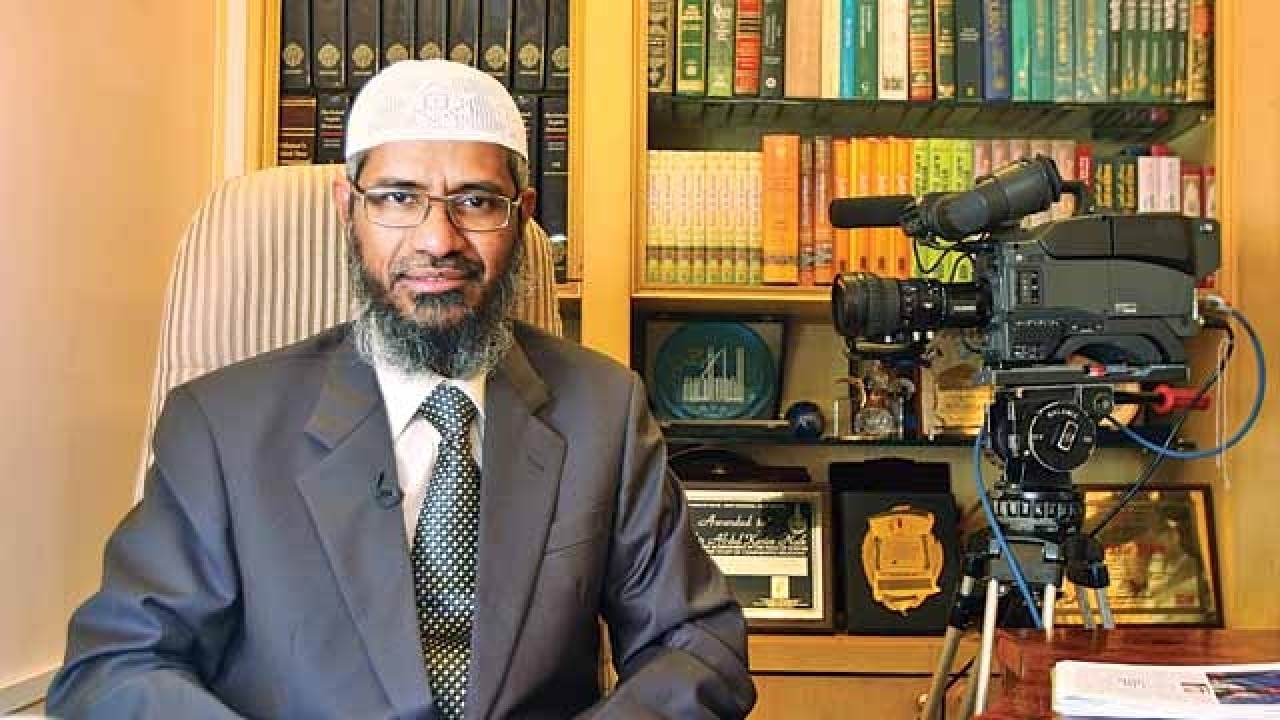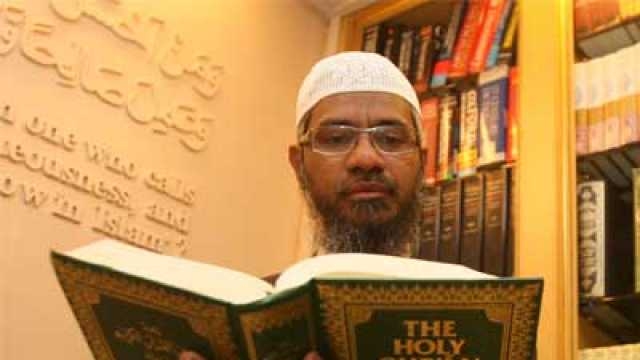
By no stretch of imagination is Zakir Naik, the founder and head of NGO Islamic Research Foundation (IRF), a benign preacher or a saintly figure. There’s no dearth of members of his own religious community who condemn him for hate-mongering and giving Islam a bad name.
However, is he indulging in terrorist activities by “radicalising” Muslim youth, as the government claims? Are the lawyers defending him to be held ‘guilty by association’? If that is the case, then no lawyer worth his salt would stop shuddering before taking on the brief of anyone accused of terror offences. Only the most intrepid of lawyers would come forward to fora without fear or favour. And most Muslim lawyers would be all the more intimidated due to the persecution and hounding they might face, for the simple reason that a majority of terror-accused (most of whom finally get acquitted) happen to profess Islam as their religion.
Moreover, how judicially sound is the government’s November 2016 decision to ban Naik’s IRF as a terror outfit under the Unlawful Activities Prevention Act (UAPA), and would it stand the legal scrutiny of the tribunal being headed by Justice Suresh Kait of the Delhi High Court?

These questions assume prime significance because of Mumbai Police’s Crime Branch summoning Naik’s lawyer SHA Jamati for questioning, and directing him to show cause why his client’s NGO should not be banned, and prove that he is in no way either an aide or an associate in Naik’s activities. It might appear that defending Jamati for fighting his client’s case is equivalent to supporting Naik’s activities, but that is not the case.
In fact, the two issues are intertwined, and the root lies in the wording of definitions in the UAPA. They are too sweeping in scope and give more than ample and justifiable reasons for the tribunals to pass orders which transgress constitutional principles, as researchers from the think tank Vidhi Centre for Legal Policy have pointed out in this piece.
Moreover, Justice PK Shali, who headed the tribunal in 2012, had this to say: “The language of the provisions of the Act is drafted in such a manner that the Tribunal is required to see only the ‘sufficiency of the cause’ for the Central Government to declare the association to be unlawful and conversely, the onus is put on the association, either as a body of persons or as office-bearers or even as members, to show cause as to why it should not be declared as unlawful.”
Successive reports, available here, here, and here, have exposed in detail how, under the UAPA, the banning regime works in a grossly undemocratic and illegal manner.
A Lawyer’s Duty
According to the law, a lawyer is an officer of the court and owes his duty only to his client and the court. He is not to be subjected to humiliation or any kind of harassment merely and only because he has taken up the case of someone deemed odious by a certain section of society and some members of the ruling government. Legendary British barrister, Lord Brougham, a tireless crusader of civil liberties, said in 1937: “An advocate, by the sacred duty which he owes to his client, knows in the discharge of that office but one person in the world — the client, and no other… to protect that client at all hazards and costs to all others, and among others to himself is the highest and most unquestioned of his duties… Nay, separating even the duties of a patriot from those of an advocate, and casting them if need be to the wind, he must go on reckless of the consequences…”
Nancy Hollander, former president of the National Association of Criminal Defence Lawyers (US), proclaims with pride and devoid of any compunction: “So let me say it: I am a terrorist lawyer, if that means I am willing to defend those accused of terrorism. I am currently defending two men imprisoned in Guantanamo and I defend others accused of terrorism. Contrary to recent attacks by those who claim to be supporters of American justice, my defence of people accused of serious and sometimes horrific crimes is not an endorsement of those crimes. Rather, it is a testament to the strength of my belief in, and commitment to, the American system of justice. Why? Because in my defence of every client, I am defending the United States Constitution and the laws and treaties to which it is bound, and I am defending the rule of law. If I am a terrorist lawyer, I also am a rule-of-law lawyer, a constitutional lawyer and a treaty lawyer.”
Sadly, in recent times in India, lawyers taking up cases of those accused of terror offences are also regarded as terrorists and hounded. The trials and tribulations faced dauntlessly by the likes of Mehmood Pracha, Sarim Naved, Trideep Pais, and Shahid Azmi (who was assassinated), who have successfully secured acquittals for those accused as terrorists, can inspire many, but not all, to soldier on. Regardless of the consequences.
But, for how long? It requires a Herculean effort to withstand the might of the state and its agencies.
Till date, Jamati has remained unfazed and has vowed to take the government head on. Mubin Solkar, a reputed Mumbai-based criminal lawyer, is also advising Naik and has warded off threats and persecution.
But, for how long should this legally-abetted thuggery be allowed to continue?